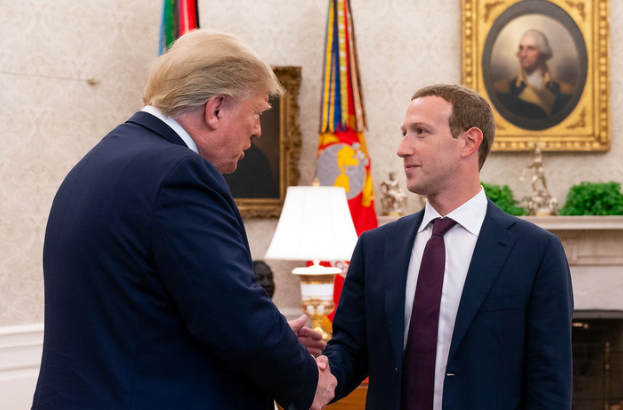*Editor’s Note: Elephant Journal articles represent the personal views of the authors, and can not possibly reflect Elephant Journal as a whole. Disagree with an Op-Ed or opinion? We’re happy to share your experience here.
~~
Check out Elephant’s Continually-updating Coronavirus Diary. ~ Waylon
~
Ever feel tested?
I mean really tested…to your limit?
If you answer yes, you may recall times of collective despair, a sense of futurelessness—the Great Depression, WWII, the more recent recession of 2008, or lived through a natural disaster, or job loss, or health crisis.
These days the V word—virus—seizes our attention, instilling fear, causing panic; it has become a global challenge, an existential crisis beyond compare for most of us. Its impact is visceral, psychically fraying, emotionally draining, pushing millions worldwide further to the margins. It’s propelled uncountable numbers into the abyss of mass unemployment, bankruptcy, food insecurity, resource shortages. In other words, we’re now standing at the threshold of a dystopian world.
It’s a bleak but real view based on available data. Before the coronavirus picked up speed, a recent PBS poll suggested that 43 percent of Americans qualified as “low income.”
A 2019 stat indicated that four in ten Americans would have struggled to cover a $400 emergency expense. While the government relief bill offers a temporary cushion of extended unemployment benefits and aid to businesses, the disruption of insolvency for the paycheck-to-paycheck earners, estimated as high as four out of five workers, catastrophe could be imminent.
Will the new congressional rescue measures restore lost jobs, resuscitate shuttered businesses, or will the American Dream become a diminishing image in our rearview mirror for an increasing percentage of people in this country?
Above this dilemma looms the question: can we redeem ourselves from impending peril? A common purpose can be a strong unifying motivator and challenging times beg strong leadership. Is Donald Trump up to the task at hand? Can we coalesce, set aside tribal differences that make us more divided today than at any time since the Vietnam war? The answer may depend on what you believe and why.
So, what should leadership look like and how do we select the right Moses to lead us out of the wilderness?
Another disastrous choice could herald the end of the American experiment. According to Forbes magazine: “One of the main problems is subconscious bias — hiring people who are just like you. When you do find any small commonality, you tend to exaggerate it, and in the end, you misread people and put the wrong people in the wrong positions.”
We seek comfort in uniformity, those who look, think, dress, talk like us, and this reinforces our sense of identity, solidarity. And when enough of us see ourselves as outliers, disenfranchised, a sense of rebellion captures a national spirit. Hence, the outcome of the 2016 election. A stilted election process allowed a grassroots populism to take control.
But the sameness of mindset that inspires an unassailable rigidity can also isolate and separate a society. With this surety of purity, community devolves into competing camps advancing parochial interests often to the detriment of greater public benefit.
Trump’s unexpected ascension to the presidency tapped into a seething malaise among the masses feeling left unheard, underrepresented, and dissatisfied with the president-in-waiting, Hillary Clinton.
Of course, there were contributing factors. Author Malcolm Gladwell said of Clinton’s loss: “It was misogyny…pure and simple.” For many, the contest between less-desirables kept people from voting. A Pew study revealed that four in ten eligible voters did not show up at the polls in 2016.
Anger had displaced Obama’s promise of hope. Never mind that the newly ordained leader of the “free world” had no record of public service, a series of bankruptcies underwrote his touted business acumen, unbridled sentiments displayed his xenophobia and misogyny, with no discernible intellectual prowess. Nor has Trump advanced any policies that champion the betterment of the nation.
A high watermark in legislation for his administration was the Tax Cuts and Jobs Bill Act which, according to the nonpartisan Congressional Budget Office, S corporations (corporations that elect to pass corporate income, losses, deductions, and credits through to their shareholders for federal tax purposes) would receive about $1,125 billion in net benefits (i.e. net tax cuts offset by reduced healthcare subsidies) over 10 years, while corporations would receive around $320 billion in benefits. In other words, it heavily favors business interests over individuals.
Trump’s antipathy for environmental protection has resulted in our withdrawal from the Paris Agreement (Climate Accords) and his recent suspension of all EPA enforcement is a boon for polluters.
Around 12 thousand lobbyists in Washington vie for the attention of our lawmakers. Giants of business and commerce dominate the army of influence peddlers and the millions of dollars spent to advance their interests. Nonprofit organizations come in at 15th on the list in money spent to corral elected officials into their camps. It’s no surprise that bills passed in Congress are authored by lobbyists.
In 2013, The New York Times and Mother Jones obtained a draft using language that lobbyists for Citigroup—one of the largest banks in the country—offered to lawmakers. It turned out that 70 of the 85 lines in the final House bill reflected Citigroup’s recommendations. This type of private sector interference in the legislative process fashions our laws.
The scale began to tip incrementally in favor of business interests under president Jimmy Carter. Under Ronald Reagan, “deregulation” became a battle cry and is now a pillar of conservative philosophy. Congress, under the sway of Republicans and free market fundamentalists, push the notion that any regulatory constraints thwart private enterprise. NPR revealed years ago, a Texan school book publisher omitted mention of FDR’s New Deal because it was deemed “anti-business.”
Governments write the laws, create policy, establish the norm. Dissent from the official narrative is often viewed as heretical. This is where finding solutions to problems threatening the general well-being becomes problematic. Washington is a bastion where the indomitability of self-interest overwhelms public interest.
Unfortunately, the presidential oath of office does not compel the Commander in Chief to be a guarantor of economic fairness.
The wage growth for American workers has roughly flatlined since the mid 1970s. According to Pew Research: “Wage growth has lagged economists’ expectations. In fact, despite some ups and downs over the past several decades, today’s real average wage (that is, the wage after accounting for inflation) has about the same purchasing power it did 40 years ago. And what wage gains there have been have mostly flowed to the highest-paid tier of workers.”
The federal minimum wage in the United States has been 2.13 U.S. dollars for tipped workers and 7.25 U.S. dollars for non-tipped workers since 2009.
So, where is the wealth in the richest country in the world?
The pay gap between average workers and CEOs is the highest in the world, a ratio of 271 to 1 CNBC stated in 2018. That same year, the richest CEO was Elon Musk, with an annual compensation of about 2.84 billion U.S. dollars. America is also home to the world’s richest man, Jeff Bezos, who is the head of Amazon. His fortune is estimated at 117 billion dollars. United States News and World Report puts the number of billionaires in the United States at 607, and 14 of the world’s 20 richest are from the United States.
PolitiFact asserted that a June 26, 2019 opinion article in which Bernie Sanders claimed “the wealthiest three families now own more wealth than the bottom half of the country”—was true.
What are we to make of this glaring income inequality?
We can hold government, lawmakers, tax laws favoring the most well-off, private sector lobbyists, and conservative think tanks responsible for the greatest upward transfer of wealth from the poorest, working class citizens to the richest in our society. It has been an unabated trend transforming our country into a two-tier society for the last 45 years. The demolition job began in earnest with Reagan’s famous “Trickle Down Economics” theory, fueled by the notion that given appropriate tax breaks, their newfound wealth would in turn trickle down from the top to the people below.
History has debunked this theory, which George Bush Sr. called “voodoo economics.” There is no empirical evidence showing that tax breaks stimulate the economy. Despite this fact, the Republican Party has become the party of tax breaks for the least needy.
If this falsely propagated idea that altruism and magnanimity impregnates the well-off were true, we would see an avalanche of charity from them in response to the pandemic and national challenge we now face.
Gestures of generosity are but a trickle, especially given the top one-percenter’s wealth estimated by the Brookings Institute in 2019 at 25 trillion dollars.
With a recent estimate of 80,000 ventilators needed to handle coronavirus victims—with a price tag of one billion dollars, president Trump railed at the cost estimate, saying he could negotiate a better price agreement. No mega wealthy names leaped in to say “I got this”; the president instead donned his game show persona as Deal Maker in Chief, but could not get beyond bluster.
In these times where social services, consumer protection, environmental guardrails are dismantled, when greed is a virtue, the needy seen as slackers—we have little incentive to invest trust in those best equipped with resources to help when most needed.
What happened to the idea that “we are our brother’s keeper?”
Former Speaker of the House, Paul Ryan, in defense of defunding school food programs, asserted that there is no evidence to suggest subsidized nutrition for needy kids leads to better academic performance. There’s an abundance of evidence proving that to be false, of course.
What is remarkable here is the absence of compassion.
How we treat others is an indicator of our humanity.
In the face of this nefarious idea that our actions must be profitable or at least cost effective, we have lost touch with our sense of empathy for others.
Our disconnect.
We can see the damage of free market slaves’ mantra: “Let the Market Decide.” This is how we continue to endure the devastating effects of a broken healthcare system. All because of the perverse notion that a for-profit system works best. It doesn’t. In 2019, an estimated 530,000 families turned to bankruptcy because of medical issues and bills.
Seventy-six countries offer some form of low cost or universal healthcare. The United States remains the outlier among developed countries and even much poorer countries ensuring healthcare as a basic human right.
It is insane that we continue to allow our elected representatives to prioritize bottom-line profiteering and focus on enriching the wealthiest among us at the expense of public health and safety.
The dearth of political will to take corrective action guarantees our descent into a haves-and-have-not society.
Where is the outrage?
In this moment of the greatest national challenge we have faced in modern times—pandemic and economic collapse—don’t look for those with the greatest resources to share their upward flood of wealth in a Trickle-Down humanity.
There’s no evidence to assume this will happen anytime soon. Sadly.
~
Relephant:


 Share on bsky
Share on bsky





Read 10 comments and reply